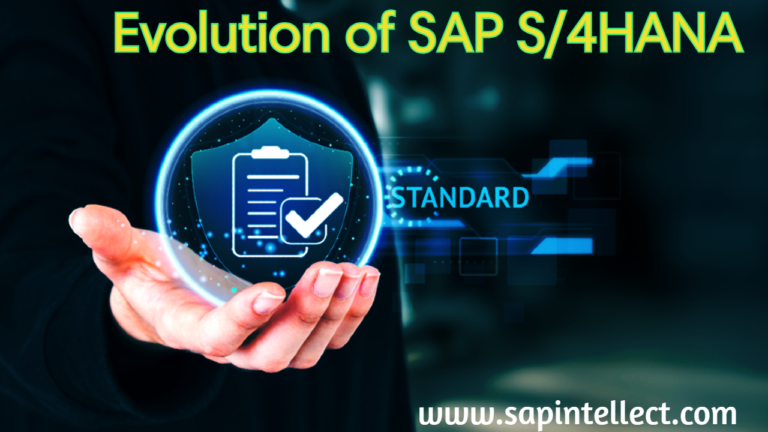SAP Business Intelligence: Empowering Informed Decision-Making in the Digital Age
In today’s fast-paced business landscape, data has become the cornerstone of success. Companies that can harness the power of their data to make informed decisions gain a significant competitive advantage. This is where SAP Business Intelligence (SAP BI) steps in, offering a comprehensive suite of tools and solutions designed to transform raw data into actionable insights. In this 1000-word exploration, we will delve into the world of SAP BI, its key components, benefits, and its pivotal role in shaping modern businesses.
Understanding SAP Business Intelligence
SAP Business Intelligence, often abbreviated as SAP BI, is a robust and versatile platform developed by the German software giant SAP. It serves as an umbrella term for a range of applications and technologies that empower organizations to collect, process, analyze, and visualize their data. At its core, SAP BI aims to provide decision-makers with the right information at the right time, enabling them to make strategic choices that drive growth and efficiency.
Key Components of SAP BI
SAP Business Warehouse (BW): SAP BW is the data warehousing solution at the heart of SAP BI. It acts as a centralized repository for an organization’s data, allowing for seamless data extraction, transformation, and loading (ETL) processes. This component ensures data accuracy and consistency, laying a strong foundation for analysis.
SAP Business Objects (BOBJ): SAP BOBJ is the reporting and visualization arm of SAP BI. It offers a suite of tools like Web Intelligence, Crystal Reports, and Dashboards that enable users to create interactive reports and visually appealing dashboards. These tools are crucial for turning raw data into meaningful insights.
SAP HANA: SAP HANA is an in-memory database technology that accelerates data processing and analytics. It allows for real-time data analysis, significantly reducing the time required to obtain insights from large datasets. HANA’s speed and agility make it a vital component of SAP BI for organizations dealing with massive data volumes.
SAP Analytics Cloud: This cloud-based solution extends the capabilities of SAP BI by providing advanced analytics, predictive modeling, and business intelligence in a single, integrated platform. It promotes collaboration and makes it easy to share insights across the organization.
Benefits of SAP Business Intelligence
Data-driven Decision-Making: SAP BI empowers organizations to make decisions based on data rather than intuition. This data-driven approach leads to better choices, improved strategies, and increased profitability.
Enhanced Business Agility: Real-time data processing and analysis enable organizations to respond swiftly to changing market conditions and customer demands. This agility is essential in today’s dynamic business environment.
Improved Efficiency: SAP BI streamlines data management processes, reducing manual effort and the risk of errors. This efficiency gains translate into cost savings and increased productivity.
Increased Competitive Advantage: By harnessing the power of data, organizations can gain insights into market trends, customer behavior, and competitor strategies. This information can be used to develop innovative products and services, giving them a competitive edge.
Better Customer Engagement: SAP BI enables organizations to understand their customers on a deeper level. By analyzing customer data, businesses can tailor their products and services to meet specific needs, leading to higher customer satisfaction and loyalty.
Compliance and Security: SAP BI offers robust security features to protect sensitive data and ensure compliance with industry regulations. This is especially critical in sectors such as finance and healthcare.
SAP BI in Action
Let’s examine a real-world scenario to understand how SAP BI can transform an organization’s operations.
Imagine a global retail chain that wants to optimize its supply chain. Using SAP BI, the company can gather data from various sources, including sales transactions, inventory levels, and supplier performance. SAP BW consolidates this data into a single, unified view, eliminating data silos.
With SAP BOBJ, the company’s supply chain managers can create interactive dashboards that display real-time information about product demand, inventory turnover, and delivery times. They can also perform “what-if” analyses to determine the impact of different supply chain scenarios.
SAP HANA enables the company to process this vast amount of data in real-time, providing instant insights. For instance, if there is a sudden increase in demand for a specific product, the system can automatically trigger reorder requests to suppliers.
Additionally, SAP Analytics Cloud allows executives to access these dashboards on their mobile devices, ensuring that they always have access to critical supply chain information, whether they are in the office or on the go.
Through SAP BI, the retail chain achieves a more efficient supply chain, reduced carrying costs, and improved customer satisfaction due to better product availability.
Challenges and Considerations
While SAP BI offers a plethora of benefits, implementing it can be a complex endeavor. Organizations need to consider factors such as data quality, integration with existing systems, and user training. Data privacy and security also remain top concerns, especially in light of evolving regulations like GDPR and CCPA.
Customization is another key consideration. Every organization has unique data needs, and SAP BI must be tailored to suit these requirements. This often requires the expertise of skilled SAP consultants.
The Future of SAP Business Intelligence
As technology continues to evolve, so does SAP BI. The future promises even more advanced analytics capabilities, greater integration with emerging technologies like artificial intelligence and machine learning, and enhanced user experiences through intuitive interfaces and natural language processing.
In conclusion, SAP Business Intelligence is a vital tool for organizations seeking to thrive in the data-driven digital age. It empowers decision-makers with actionable insights, promotes efficiency and agility, and ultimately leads to a competitive advantage. However, it’s essential for organizations to approach SAP BI implementation strategically, addressing challenges and tailoring the solution to their unique needs. With SAP BI as a cornerstone of their digital strategy, businesses can chart a course toward success in an increasingly data-centric world.







